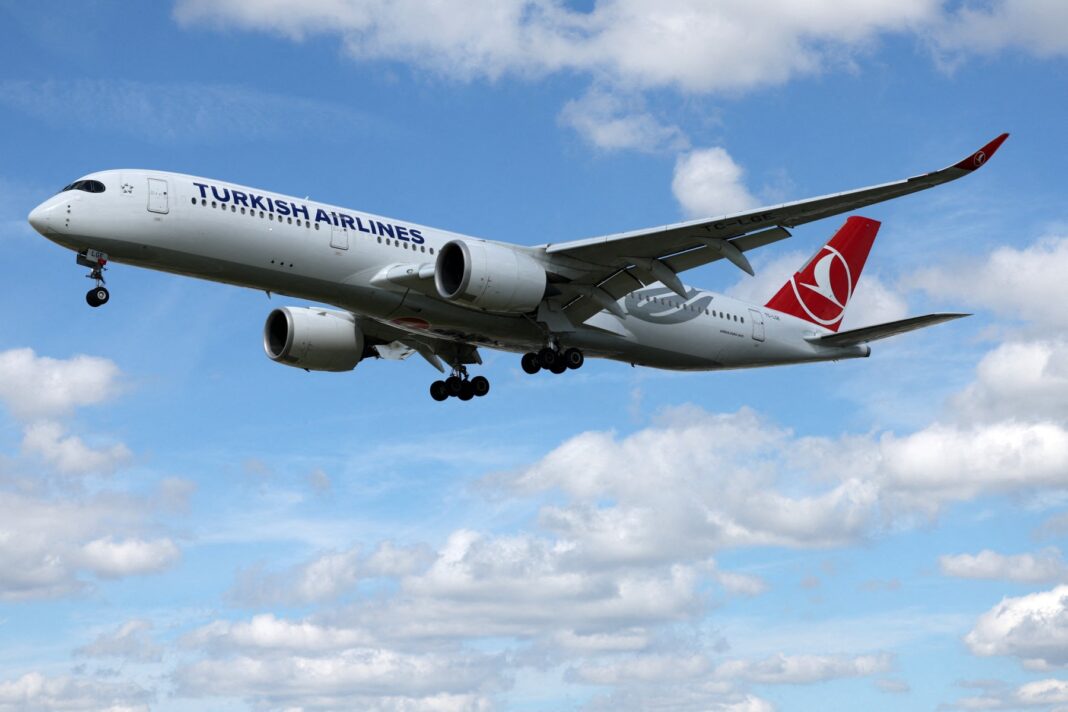Turkish Airlines is facing public scrutiny following reports of bedbugs on its flights, prompting the carrier to defend its pest-control measures and commitment to passenger safety.
Bazı basın organlarında yer alan tahtakurusu haberleri ile ilgili olarak belirtmek isteriz ki, Türk Hava Yolları, güvenlik ve konfor noktasında en yüksek standarda olan bağlılığını titizlikle sürdürmektedir.
Tahtakurusu vakaları, zaman zaman uçaklar da dahil olmak üzere kamuya…
— Yahya ÜSTÜN (@yhyustun) January 2, 2025
Turkish Airlines Press Advisor Yahya Üstün addressed the issue on Thursday in a statement posted on X after multiple passengers shared their encounters with bedbugs on recent flights. Üstün emphasized that the airline adheres to stringent cleaning protocols and investigates all feedback thoroughly. “Bedbugs are a common issue that can sometimes occur in public spaces, including aircraft,” he said. “In such cases, affected aircraft are immediately inspected, and our routine procedures include thorough cleaning and disinfection before every flight.”
The statement followed media reports, including a detailed account in The New York Times, describing several incidents of bedbug sightings.
One passenger, Patience Titcombe, told the NYT that she encountered a bedbug on her seat during a flight from Johannesburg to İstanbul in March and provided photographic evidence. According to the Times report, Titcombe claimed that the airline dismissed her concerns despite her documentation, which she also shared on social media.
In a separate account in the NYT report, Matthew Myers, a passenger on an October flight from İstanbul to San Francisco, said he and other passengers saw bedbugs on seats and falling from the ceiling. Myers told the Times that he witnessed a fellow passenger moving to a flight attendant jump seat after reporting bugs on their lap. Myers said he was offered a 10 percent discount on future travel, valid through December 2024.
Bed bugs are a nightmare and incredibly hard to eliminate. Bringing your own sheets and pillowcases won't stop an infestation. They crawl all over. @TurkishAirlines is facing some seriously BAD press over this issue. https://t.co/E9XIV1vg2o
— Dextryl Ferrao (@Dextryl) January 2, 2025
Turkish Airlines, which operates nearly 400 aircraft serving over 300 destinations, has defended its record, noting that all planes undergo routine deep cleaning every 21 days in addition to pre-flight disinfection. However, aviation industry experts highlight the logistical challenges airlines face in combating bedbugs. Rob Tuck, an aviation consultant, told the NYT that treating an infested aircraft requires removing it from service for several days, potentially costing up to $125,000 per incident.
Passengers have criticized Turkish Airlines for its handling of complaints, alleging dismissive responses and insufficient compensation.
Turkish Airlines doesn't take any responsabilities for the lack of hygiene on their flights and lie saying no incident has been reported.
The incident has been declared by the cabin crew during the flight with pictures.
Worst customer service pic.twitter.com/mZyIaUFM09
— Antoine Lourme (@AntoineLourme1) August 20, 2024
Social media platforms have amplified these frustrations, with one user, Antoine Lourme, documenting a three-week wait for a response after reporting a bedbug incident. The airline eventually offered him a 10 percent discount on future travel, a gesture Lourme deemed inadequate.
The backlash comes amid heightened awareness of bedbug infestations in public spaces, including a high-profile outbreak in Paris during Fashion Week in 2023. Bedbugs are resilient pests that thrive in environments like airplanes, where they can spread via luggage and upholstery. Experts recommend rapid containment measures, though airlines face challenges due to tight schedules and high operating costs.
Turkish Airlines stressed its dedication to passenger comfort and safety. In his statement Üstün assured travelers that the airline remains in close collaboration with aircraft manufacturers to implement the latest pest-control protocols.



